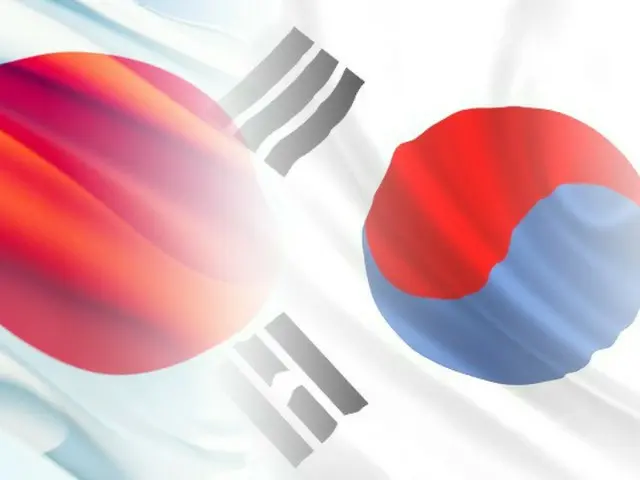In South Korea, some people say that the Rising Sun Flag is an obvious political symbol that recalls the historical wounds of Korea, which was invaded by Japan, and some people feel disgust towards it.
In 2018, the South Korean side invited the Japan Maritime Self-Defense Force to the International Fleet Review held in Jeju, South Korea, but requested that they refrain from flying the Rising Sun Flag, the flag of the Self-Defense Forces.
Will this issue be rekindled at the international fleet review in May next year? The fleet review is an event where the head of state inspects his country's fleet, and in addition to boosting the morale of the crew, it also aims to promote the nation's
According to South Korean media, including Yonhap News, the South Korean Navy plans to hold an international fleet review in Busan in May next year to mark the 80th anniversary of the founding of the South Korean Navy.
The proposed defense budget for next fiscal year (January to December) includes approximately 4 billion won (approximately 435 million yen) for the International Fleet Review.
This will be the first time in seven years that the South Korean Navy has held an international fleet review since the one in Jeju in 2018.
The naval review is held by inviting friendly countries, and the Moon Jae-in administration at the time also invited the Japanese Maritime Self-Defense Force to the naval review in the same year. However, as mentioned above, when participating, the Rising Sun was not displayed on the JMSDF ships.
The Self-Defense Forces Act requires that warships not fly the Self-Defense Forces Ensign. The United Nations Convention on the Law of the Sea requires that warships fly "external signs" that indicate their affiliation. For JMSDF ships, the Self-Defense Forces Ensign is an external sign, and the Self-Defense Forces Act and other laws prohibit this.
During the voyage, it is mandatory to fly the Self-Defense Force flag at the stern. In response to the request from the South Korean side, the then Chief of Staff of the Joint Staff, who was the top uniformed officer in the Self-Defense Forces, said, "For the Maritime Self-Defense Force personnel, the Self-Defense Force flag is a source of pride. We will lower it.
"We will absolutely not participate in the drills," he said. In the end, the two sides were unable to reach an agreement, and Japan canceled its plans to send MSDF vessels.
The MSDF sent an invitation to South Korea in advance to attend the International Fleet Review to be held in Sagami Bay in November 2022.
However, the Moon administration at the time was unable to decide whether to participate. In addition to the frosty relationship between Japan and South Korea at the time, there were concerns that South Korean soldiers would salute the Rising Sun flag of the Self-Defense Forces.
The Moon administration, which sent the invitation from Japan, was replaced by the Yoon Seok-yeol administration in May of the same year, which showed a strong desire to improve Japan-Korea relations, and the South Korean military announced its participation after careful consideration.
The support ship Shoyo was sent to Sagami Bay. The crew of the Shoyo saluted the Self-Defense Forces' escort ship Izumo, carrying Prime Minister Fumio Kishida, who was visiting the bay.
During a multinational exercise hosted by the South Korean government held in May last year off the coast of Cheju Island in the south of South Korea, the Japan Maritime Self-Defense Force
The JSDF entered the port of Busan in the south east, flying the Rising Sun flag. As mentioned above, there is an international rule that military vessels, including those of the Self-Defense Forces, must display "external markings" indicating their nationality.
In stark contrast to the International Fleet Review in 2013, the South Korean Ministry of National Defense (Ministry of National Defense) accepted the move, saying it would "follow international customs." With the port entry now a reality, Japan has come to understand that South Korea's response to the Self-Defense Force flag is in line with international standards.
The South Korean Navy is scheduled to hold an international fleet review in Busan in May next year, and other naval reviews will be held in addition to those of Japan, the United States, Australia, China, Canada, the United Kingdom, India and Indonesia.
Dozens of countries, including South Korea, Brazil, and Singapore, are expected to be invited, but the Ministry of National Defense said, "It has not been decided which countries will participate."
As mentioned above, at the 2018 International Fleet Review in Jeju, there were many disputes over the raising of the Self-Defense Force flag.
The Japan-South Korea relationship was not able to reach an agreement, and the MSDF decided not to participate. Yonhap News pointed out that "the raising of the Self-Defense Force flag may become an issue again" regarding next year's international fleet review, but added, "However,
The Yun Seok-yeol administration, which has placed importance on security cooperation between South Korea, the United States, and Japan, and between South Korea and Japan, is expected to accept the participation of Japanese vessels flying the Self-Defense Force flag, even if a controversy arises over the Rising Sun Flag," he predicted.
"The current administration's policy is to ensure that the raising of the JSDF flag does not become an obstacle to security cooperation between South Korea and Japan, as happened in the past."
2024/09/12 14:42 KST
Copyrights(C)wowkorea.jp 5

